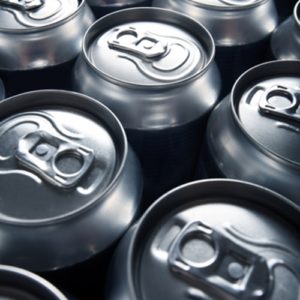
We know students attending culinary schools in Texas are drinking a lot of beer and soda and contributing to the aluminum and glass waste of the world. Here’s a little about the latest in the beverage distribution industry.
The evercan is the first drink can guaranteed to have been made from at least 90 percent recycled aluminum. The production process for the product reduces green house gas emissions and saves energy, according to Novelis. The cans are certified by Scientific Certification Services, an independent environmental auditor.
The company is also selling its recycled aluminum to the auto industry, where fuel-efficiency regulations call for lighter materials. Using recycled aluminum reduces the greenhouse gas emissions caused directly by the manufacturing process, as well as the amount of heat-trapping gas pollution created by the production of the materials needed to make the new vehicles.
The buyers
Currently the only major customer buying the evercan is Red Hare Brewing Company out of Marietta, Georgia. According to Red Hare, they are the first craft brewery in the state to can their beer. They’re also the first brewery to use evercans. Their reason?
“We want to keep Mother Earth happy,” the company explained in a blog on its website entitled, “Yes We Can.” The brewery chose the cans because they are easier to recycle, they take up less space (which means more efficient shipping) and they weigh less than traditional aluminum cans. The beer is well-preserved in the cans because they are opaque and have a tighter seal than glass bottles, which helps to preserve better freshness. Another reason? Cans are much better for travel. They’re great for tailgating, festivals, going to the beach or the pool and more.
Red Hare also liked that the evercan creates 72 percent less carbon dioxide emissions than glass bottles and 22 percent less than ordinary cans. According to the Aluminum Association, the average can has 68 percent recycled content, but that content isn’t certified and may not be accurate. On average, the cans are recycled and made into a new can every 60 days.
No big business?
Why aren’t the global leaders in the beverage industry like Coca-Cola and Pepsi buying? Many of the companies are focused on PET (polyethylene terephthalate) plastic bottles and plant bottles instead because they are resealable, which makes them more convenient for their busy, on-the-go customers. While getting a retailer like Pepsi or Coca-Cola to use the evercan and promote industry that is sustainable would be helpful, getting people to recycle more in general would be even better. This would send more aluminum to be recycled, giving Novelis more material to work with, and lessening the new material that is being produced, Marc Gunther, editor-at-large for Guardian Sustainable Business U.S., explained.
What will it take for big business to change to a more sustainable packaging like evercan? We’ll have to wait and see.



